Great Yarmouth: Campaign to honour 26 women killed in WW2 bombing
 Imperial War Museum
Imperial War MuseumA campaign has been launched to honour 26 women killed in what a charity said was the largest loss of female lives in the British Army.
On 11 May 1943, the women died when their accommodation in Great Yarmouth, Norfolk, was struck by enemy planes.
But only half the victims, who served in the Army's Auxiliary Territorial Service (ATS), have been remembered on war memorials in their home towns.
WW2 veteran Joan Awbery, 101, said: "They all helped... to win the war."
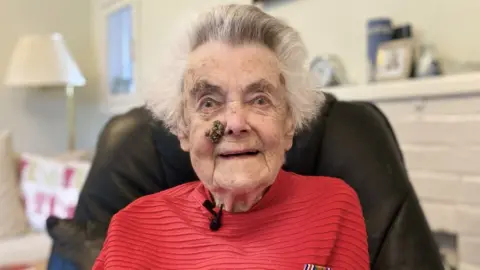
On the 79th anniversary of the servicewomen's deaths, the WRAC Association (Women's Royal Army Corps) charity has started the #WeWillRememberHer campaign to ensure their names are etched on local memorials.
The women, mostly in their early 20s and from towns across the UK, were killed when German fighter bombers attacked their quarters in Great Yarmouth's North Drive.
Only one woman was pulled alive from the ruins that had housed the ATS signallers, part of the 103rd Anti-Aircraft Brigade.
Fourteen bombs were dropped on the seaside town that day, killing 49 people in total.
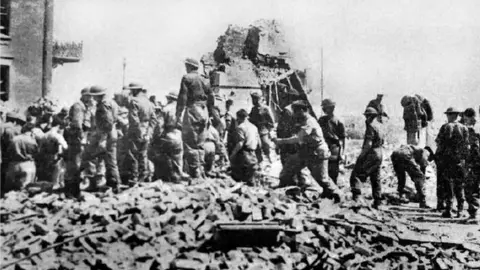 London Evening News
London Evening NewsFormer ATS member Ms Awbery, who had been based in Cambridge, became aware of the tragedy - representing the biggest disaster for the British Army's serving female personnel - while branch secretary of Norfolk's WRAC.
She was contacted by an ex-serviceman in the 1990s who had discovered a series of war graves in Caister cemetery, near Great Yarmouth, of women who had died on the same date.
"[The fighter planes] used to pop over from Holland, drop a bomb and get back quickly before they could be discovered. They were flying too low to be discovered by the radar," said Ms Awbery.
She said she had been "completely astonished we didn't know anything about them".
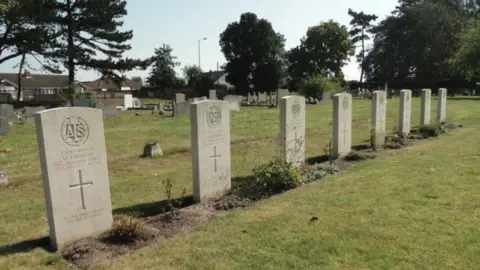 WRAC
WRACMs Awbery started a fundraising campaign to have a plaque with all the victims' names installed at the Imperial Hotel - near where they died - which was unveiled by Winston Churchill's youngest daughter Lady Soames in 1994.
The plaque, which has since been broken, will rededicated on Sunday and Ms Awbery hopes to attend the service.
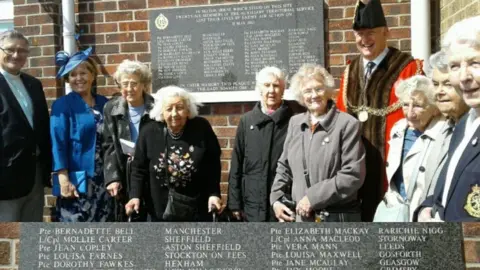 WRAC Association
WRAC AssociationShe also wanted the women to receive recognition in their home towns and backed the WRAC Association's campaign to ensure they are all remembered on their individual memorials in time for the 80th anniversary of their deaths.
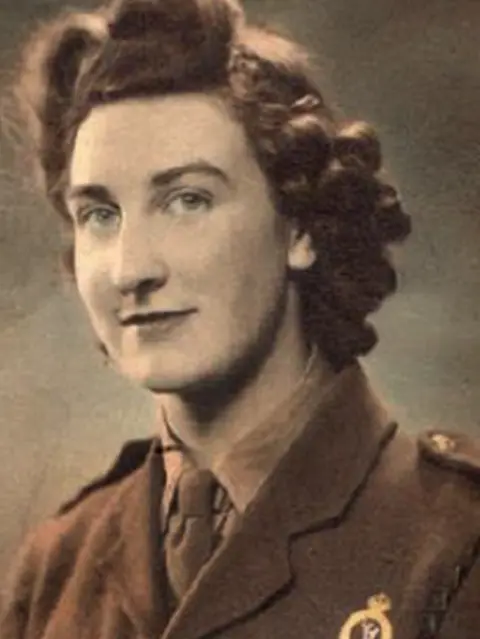 Images of WW2 Women
Images of WW2 WomenThe charity has urged people to check its list, visit the official memorials and send them a photo so they can identify names and lobby local councils.
"Women... were only wives or sisters, and it was the men who were so important," said Ms Awbery.
"We didn't want them to be forgotten.
"On the war memorials are the names of men who were not only killed, but they too had done mundane jobs - they weren't heroes at all - they hadn't got medals, but they did their bit and so had we.
"All war memorials should have their names."
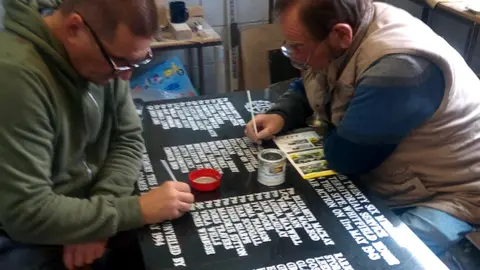 WRAC
WRAC
Find BBC News: East of England on Facebook, Instagram and Twitter. If you have a story suggestion email [email protected]
